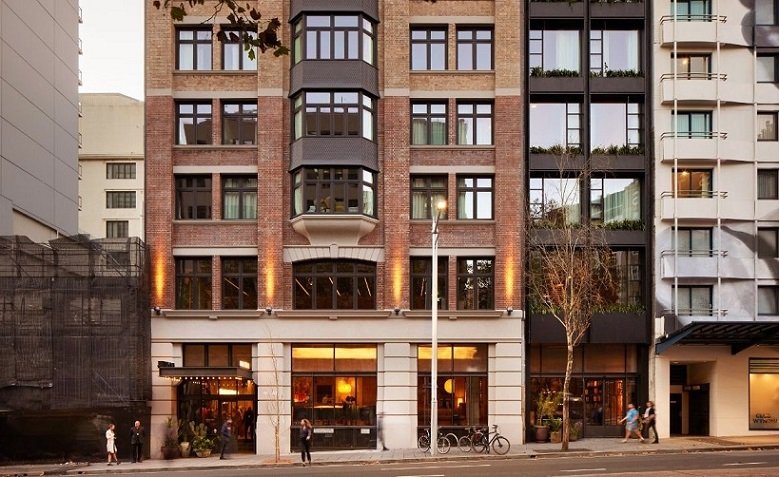Key points
- Japan’s largest hotel chain, Seibu Prince Hotels Worldwide (SPW), has made headlines with its acquisition of Ace Group International, the parent company of Ace Hotels and its creative agency, Atelier Ace.
- The Sydney property is housed in the historic Tyne House, a Federation-era warehouse originally constructed in 1915 and later transformed into a design-forward hotel that won recognition from the City of Sydney.
- Seibu Prince Hotels Worldwide President and CEO, Yoshiki Kaneda, described the acquisition as “an important milestone in SPW’s journey to become a truly global hotel group with Japanese roots.
International Hotel News: A Bold Move from Japan’s Largest Hotel Operator
Japan’s largest hotel chain, Seibu Prince Hotels Worldwide (SPW), has made headlines with its acquisition of Ace Group International, the parent company of Ace Hotels and its creative agency, Atelier Ace. The deal, valued at approximately US$90 million (AU$136 million), instantly adds one of the most recognizable lifestyle hospitality brands to Seibu Prince’s already impressive portfolio. This International Hotel News report highlights how the move signals SPW’s ambitious strategy to expand its footprint from its current 86 hotels to 250 properties worldwide by 2035.

The Ace Hotel in Surrey Hills, Sydney-Australia
Image Credit: Ace Hotels
The Deal and Its Global Impact
The acquisition allows Ace Hotels to operate as part of Seibu Prince’s hotel division while retaining independence in brand and creative direction. Collectively, the two groups now control 94 hotels in operation with seven more under development. SPW also manages 31 golf courses and 10 ski resorts globally, demonstrating its dominance across multiple leisure sectors. The addition of Ace Hotels brings fresh energy and a distinctive cultural edge to the Japanese operator’s expansion strategy.
Ace Hotels and Its Global Identity
Founded in 1999, Ace Hotels has grown into a globally recognized brand known for its experiential approach to hospitality. Its portfolio includes eight hotels worldwide with locations in New York, Seattle, Palm Springs, Toronto, Kyoto, Athens, and Sydney’s Ace Hotel Surry Hills. The Sydney property is housed in the historic Tyne House, a Federation-era warehouse originally constructed in 1915 and later transformed into a design-forward hotel that won recognition from the City of Sydney. Future developments include Ace Hotel Fukuoka, set to open in 2027, which will mark the brand’s second property in Japan.
Strategic Alignment and Leadership Insights
Seibu Prince Hotels Worldwide President and CEO, Yoshiki Kaneda, described the acquisition as “an important milestone in SPW’s journey to become a truly global hotel group with Japanese roots.” He emphasized how the combination of Ace’s cultural innovation and SPW’s Japanese omotenashi hospitality philosophy creates a strong platform for worldwide growth. Chris Penn, CEO of Ace Hotels, echoed this sentiment, noting that the partnership will provide the infrastructure and resources needed to scale while preserving Ace’s creative spirit and cultural resonance.
Implications for the Hospitality Industry
The acquisition underscores the rising value of lifestyle brands in global hospitality. Major players like Marriott International have also moved into this space, with its recent US$355 million purchase of CitizenM. SPW’s investment in Ace reflects a trend where traditional operators seek fresh, experience-driven brands to attract younger and more diverse travelers worldwide. This deal positions Seibu Prince not just as a Japanese powerhouse but as a formidable competitor in the international lifestyle hotel market.
Looking Ahead
The integration of Ace Hotels into Seibu Prince’s global vision marks the start of a transformative chapter for both companies. With SPW’s vast infrastructure in Asia-Pacific and the Middle East and Ace’s credibility across North America and Europe, the two are poised to accelerate growth across continents. For travelers, this means a richer variety of culturally immersive hotels underpinned by reliable global standards. For the industry, it signals increasing competition in the lifestyle segment, where design, creativity, and cultural engagement are as vital as room service or location. The partnership is expected to reshape the way hospitality brands align themselves in a rapidly evolving global market.
For the latest International Hotel News, keep on logging to Thailand Hotel News.

